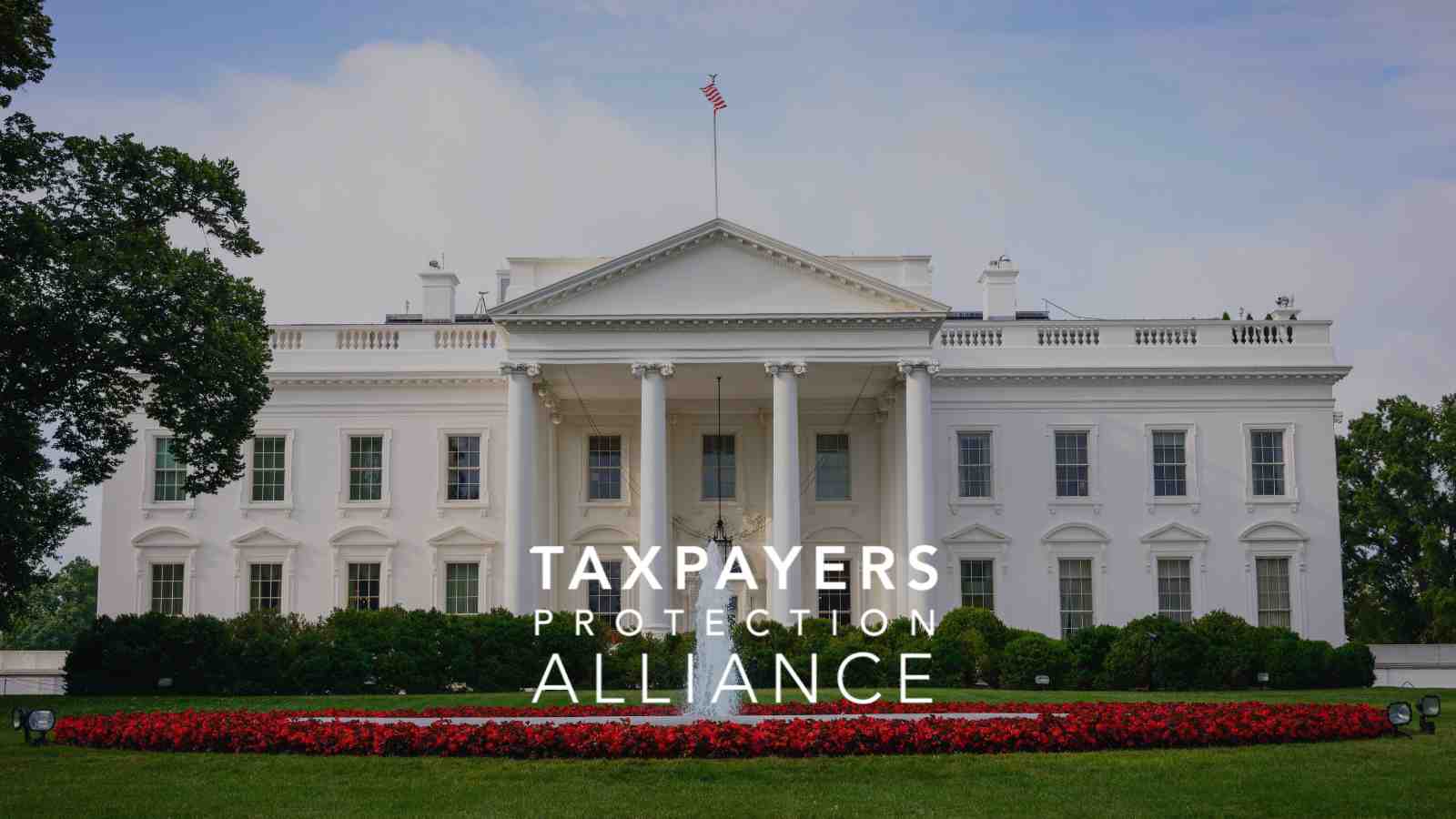
Taxpayer Watchdog Urges Supreme Court to Rule Against Trump’s Tariffs
Taxpayers Protection Alliance
November 5, 2025
FOR IMMEDIATE RELEASE
Contact: Kara Zupkus (224)-456-0257
WASHINGTON, D.C. – This morning, the Supreme Court will hear oral arguments for a pair of consolidated cases concerning President Donald Trump’s sweeping imposition of tariffs under the International Emergency Economic Powers Act (IEEPA). Specifically, the Court will consider whether IEEPA delegates to the President the power to tariff and, if it does, whether such delegation of a core congressional power is constitutional.
The Taxpayers Protection Alliance (TPA) joined a coalition led by Advancing American Freedom in submitting an amicus brief, arguing that “[t]he President’s exercise of power here is…either outside the scope of the power granted by Congress through IEEPA or IEEPA is an unconstitutional delegation of power reserved exclusively to the legislative branch.”
As arguments are about to commence, David B. McGarry, Research Director of the Taxpayers Protection Alliance Foundation (TPAF) and the Project Manager of TPAF’s Free Trade Center, offered the following comment:
“At issue in these cases are several simple propositions: In America, the people consent to taxation by sending their elected representatives to vote for or against proposed taxes; this nation is governed by a constitutional order, and not by the arbitrary will of evanescent and opportunistic politicians and bureaucrats who manufacture faux emergencies to circumvent that order; and laws mean what they say, as does the Constitution. In short, this is a nation of laws, and not of men.
“Taxation without consent is theft. Consent, said the Founders, is made manifest in representation in the legislature, which approves or disapproves levies on the citizenry. Thus, the Anglo-American political tradition has for centuries made certain that the power of the purse resides with the people. This principle was embedded into Article I, Section 8, Clause 1 of the Constitution, where its plain expression can be judged by all. In arguing that IEEPA conveys tariff powers, President Trump’s administration jumps out of the statutory frying pan and into the constitutional fryer. If the powers President Trump claims are to be found in IEEPA, that statute runs afoul of the nondelegation doctrine by violating the Constitution’s clear division of powers.
“The Supreme Court concerns itself only with the law, and not with politics or economics. Nonetheless, American businesses and consumers watch attentively as President Trump’s tariffs—grounded in false premises and cultivated with equally false economic theories—teeter on the edge of legal oblivion. Fortunately for the Court (and for the American people), the Constitution of the United States erects barriers against meddlesome politicians and their schemes and systems. In many cases, as in this one, defending the Constitution and defending the liberties of American citizens go hand in hand. If the Supreme Court finds President Trump’s tariffs unconstitutional, the decision will indicate the health of the constitutional system.
“The Supreme Court faces a test of its mettle. It has passed many such tests before—and likely will again in this case. The Constitution demands it. The American people depend upon it.”
###
Taxpayers Protection Alliance (TPA) is a non-profit, non-partisan organization dedicated to educating the public through the research, analysis and dissemination of information on the government’s effects on the economyR
